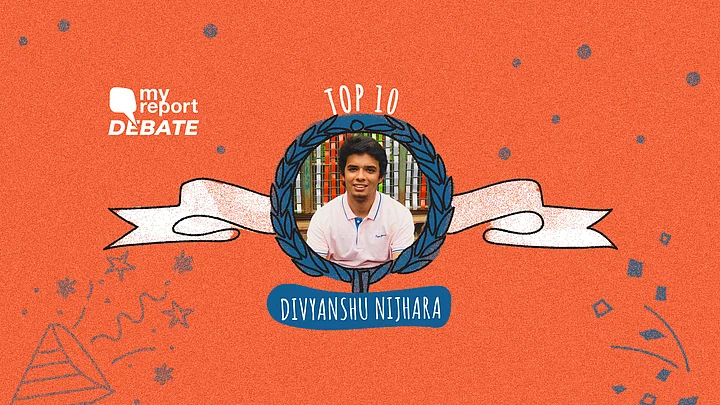(Divyanshu Nijhara’s essay is among the Top 10 of the My Report Debate. Participants were asked the question: Who do you think should lead India – a single party or a coalition?)
“The fact that we are going through a coalition phase in national politics reflects in many ways the decline of the Congress. This is a passing phase and we will come back again with full force on our own steam. But in the interim, coalitions may well be needed,” Sonia Gandhi had said at the Pachmarhi Session of the Indian National Congress (September, 1998).
The 1990s was a politically unstable decade – we saw six prime ministers change along with four general elections; perhaps because of the shifting coalition ties.
But does that mean that coalitions equate to political disharmony, or does it mean they relate with an empowerment of electoral democracy?
The BJP under the leadership of Atal Bihari Vajpayee managed to pool in 25.5% of the vote share which appropriated them 182 seats in the Lok Sabha Elections of 1998. President KR Narayanan invited Vajpayee to showcase the letters of support and prove his majority in the lower house within 10 days of him being sworn in. The National Democratic Alliance was formed under the umbrella of the BJP. The members included the Akali Dal, BJD, AIADMK, MNF, Shiv Sena etc.
The year 1998 saw events like the the Pokhran nuclear test, which aroused a lot of international criticism along with economic sanctions, but we must look into the fact as to how it acquired support at the domestic level, not just from the NDA but also from the the opposition. India also stood united at the time of Kargil War in 1999, just before the 13-month government of Vajpayee was brought to its knees by Giridhar Gamang’s controversial vote; ruling against the motion. Majority was lost and elections recommended.
The first full-time non-Congress government was to take India forward with a 6% growth rate, enlarged FDI, increased disinvestment in PSUs and telecom boost.
In 1999, NDA was back in power. It was this high morale of the Vajpayee-led government that made them pre-pone the 2004 elections by 6 months. The new ‘India Shinning campaign’ was launched, unfortunately only to fail. The Congress Party bounced back to power, but with only the coalition at its central strategy. It was now, the United Progressive Alliance.
While PM Manmohan Singh and then-party president Sonia Gandhi had agreed upon putting up the UPA, with parties like NCP, RJD, JMM, CPI, etc, senior party leader Pranab Mukherjee remained extremely critical of it as he said that forming the government with the support of coalition was always fraught with risks. The inability of governments to meet the expectations of parties only reinforces the fragility of coalition.
The Congress party only ended up suffering because of this; be it in the case of A Raja or Lalu Yadav being arrested on charges of corruption. Then happened the Indo-US nuclear deal following which the Left parties withdrew their support and so did the BSP by withdrawing 59 and 17 MPs respectively. Not until the Samajwadi Party came to the rescue with 39 members, the UPA was fit to rule.
The tally was back to 276 members and Vote of Confidence reinstalled in the government. 2014 brought the BJP with a thumping majority. The party got 282 seats on its own and 336 seats along with the NDA. This clearly meant no threat to ruling party.
Gradually, allies kept on joining, like the DMDK, PDP, INLD, but they also left as 2019 began to approach, be it the TDP or the PDP. Coalitions often ended up creating a lot of unstable governments. Regional parties have played a major role in convincing the government at the centre to work in their manner.
The idea of opportunism ended up dominating over the real principle of federalism. Single-party control allows the government to rule and fulfil the promises of the people.
Coalitions often destabilise the state and further when we take in the point of healthy criticism of a government’s policies, we definitely have the opposition to do the role.
(All 'My Report' branded stories are submitted by citizen journalists to The Quint. Though The Quint inquires into the claims/allegations from all parties before publishing, the report and the views expressed above are the citizen journalist's own. The Quint neither endorses, nor is responsible for them.)
(At The Quint, we question everything. Play an active role in shaping our journalism by becoming a member today.)
